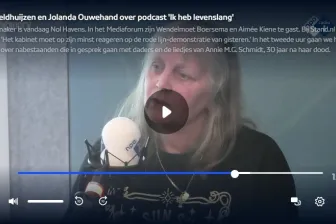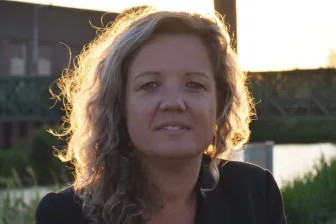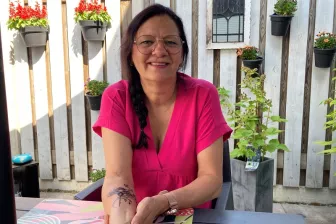Already during his prison sentence, Ata wanted to apologize to the victims of the fire he started in asylum seekers center. After he got out, a probation worker applied for him at Perspectief Herstelbemiddeling. What followed was a special conversation between victim and offender.
“When I was in prison, I thought: maybe I can tell the victim that I’m sorry. I could imagine how the victim must’ve been feeling, and I wanted to make things right.”
“In the moment it happened I had no control over myself. I was under the influence of alcohol and my brain wasn’t functioning. Only days later I realized what had happened and what I had done. The situation at that moment was so hard, that alcohol was the only solution for me at the time.”
Remorse
“When I was detained, I immediately wanted to apologize to everyone involved. I could have asked for contact at that moment. But I didn’t, because I didn’t want to give the impression that I wanted to do it to have my sentence reduced. I didn’t want it to influence the court case.”
After Ata was released and sent to probation services, probation worker Gerhard Hoekerd of Reclassering Nederland got a clear signal from Ata: he was sorry, he wanted the victims to know this, and he wanted to give something back to society. Gerhard: “In the first conversation that I had with him, Ata said: I want to do everything I can to make it right. Shame was also a factor.”
Gerhard then applied for Ata at Perspectief. Mediator Francis contact Gerhard, and then had a conversation with Ata. She discussed with Ata who he wanted to apologize to and what his expectations were. This was to avoid any disappointments. Francis then sent a number of letters to the people who were involved in the incident. A few of them refused the request, they did not want to get in contact. Francis called them afterwards to ask what their reasons were to say ‘no’. She communicated these reasons back to Ata.
One victim, a staff member of the asylum seekers center, wanted to meet with Ata.
Before the meeting takes place, Frances carefully prepares the contact with both people. She will discuss where the meeting will take place, who will be there as support persons, whether they will shake hands, and more.
The meeting
Ata: “With stress and fear I went into the meeting. I was scared that the victim would not understand me and I would not be able to communicate clearly what I wanted to say. At the same time I was hopeful that she would accept my apology, because it came from the heart.”
“During the meeting it became clear to me that she felt guilty, because she thought that she had missed certain signals with me. It was not her fault! It was my fault to start using alcohol. That’s what I tried to tell her.”
“She said: ‘Thank you for reassuring me that I did nothing wrong.’ That’s when it became clear to me that I had managed to get my message across. She didn’t have to feel guilty anymore or think that she had done anything wrong.”
I wish we could turn back time
“The problem I caused was a lot bigger, of course. She wasn’t the only one, but she did suffer the worst consequences from it. I can’t turn back time, but with my behavior I can take responsibility for my actions.”
Gerhard: “Ata couldn’t remember everything surrounding his actions, but he took responsibility for everything the victim told him. She got answers to the questions she had.”
At the end, Ata gave the victim a gift. In the city where he lives, there’s a tower with a clock in the center. This tower is on the gift wrapping of a bottle of wine. With this he wanted to say: I can’t turn back time, but I want to make things right. To which the victim said: ‘I wish we could turn back time.’
Ata: “After the meeting I went home without stress and fear, only with happiness. If Perspectief hadn’t existed, I would’ve never been able to say sorry to the victims. Then I would always be scared: what do they think about me? Do they feel negatively about me?”
What would you like to say to professionals who work with suspects and offenders?
“The situation is different for everybody. Some offenders will be too vain and will never want to admit that what they did was wrong. Others will think after their prison sentence: I’ve done my time, why would I still apologize?”
“But they should understand what it means to do something for the victim. If you don’t do it, you’ll keep thinking for your entire life: they will hate me, what do they think about me. By showing remorse you can solve a lot of issues. Those who are willing to say sorry, need to be stimulated. You have to explain to them how it can help them. For me it meant that by saying sorry just one time, I could solve a lot of problems. And sometimes even friendships can come from it.”



